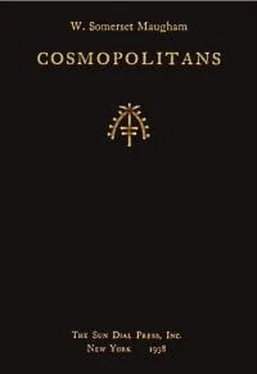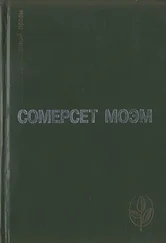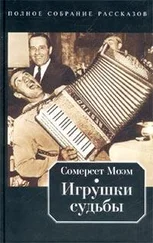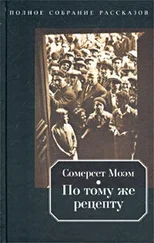Уильям Моэм - Cosmopolitans
Здесь есть возможность читать онлайн «Уильям Моэм - Cosmopolitans» весь текст электронной книги совершенно бесплатно (целиком полную версию без сокращений). В некоторых случаях можно слушать аудио, скачать через торрент в формате fb2 и присутствует краткое содержание. Город: New York, Год выпуска: 1938, Издательство: The Sun Dial Press, INC., Жанр: Классическая проза, short_story, на английском языке. Описание произведения, (предисловие) а так же отзывы посетителей доступны на портале библиотеки ЛибКат.
- Название:Cosmopolitans
- Автор:
- Издательство:The Sun Dial Press, INC.
- Жанр:
- Год:1938
- Город:New York
- ISBN:нет данных
- Рейтинг книги:5 / 5. Голосов: 1
-
Избранное:Добавить в избранное
- Отзывы:
-
Ваша оценка:
- 100
- 1
- 2
- 3
- 4
- 5
Cosmopolitans: краткое содержание, описание и аннотация
Предлагаем к чтению аннотацию, описание, краткое содержание или предисловие (зависит от того, что написал сам автор книги «Cosmopolitans»). Если вы не нашли необходимую информацию о книге — напишите в комментариях, мы постараемся отыскать её.
Cosmopolitans — читать онлайн бесплатно полную книгу (весь текст) целиком
Ниже представлен текст книги, разбитый по страницам. Система сохранения места последней прочитанной страницы, позволяет с удобством читать онлайн бесплатно книгу «Cosmopolitans», без необходимости каждый раз заново искать на чём Вы остановились. Поставьте закладку, и сможете в любой момент перейти на страницу, на которой закончили чтение.
Интервал:
Закладка:
“I’ve just got off the Shika Maru,” I said. “Can I have a room?”
“I’ll come down.”
I waited a little longer, and the door was opened by a woman in a red flannel dressing-gown. Her hair was hanging over her shoulders in long black wisps. In her hand she held a paraffin lamp. She greeted me warmly, a little stoutish woman, with keen eyes and a nose suspiciously red, and bade me come in. She took me upstairs and showed me a room.
“Now you sit down,” she said, “and I’ll make up the bed before you can say Jack Robinson. What will you “ave? A drop of whisky would do you good, I should think. You won’t want to be washing at this time of night, I’ll bring you a towel in the morning.”
And while she made the bed she asked me who I was and what I had come to Thursday Island for. She could see I wasn’t a sea-faring man-all the pilots came to this hotel and had done for twenty years-and she didn’t know what business could have brought me. I wasn’t that fellow as was coming to inspect the Customs was I? She’d “eard they were sending someone from Sydney. I asked her if there were any pilots staying there then. Yes, there was one, Captain Bartlett, did I know him? A queer fish he was and no mistake. Hadn’t got a hair on his head, but the way he could put his liquor away, well, it was a caution. There, the bed was ready and she expected I’d sleep like a top and one thing she could say was, the sheets were clean. She lit the end of a candle and bade me good night.
Captain Bartlett certainly was a queer fish, but he is of no moment to my present purpose; I made his acquaintance at dinner next day-before I left Thursday Island I had eaten turtle soup so often that I ceased to look upon it as a luxury-and it was because in the course of conversation I mentioned that I spoke French that he asked me to go and see French Joe.
“It’ll be a treat to the old fellow to talk his own lingo for a bit. He’s ninety-three, you know.”
For the last two years, not because he was ill but because he was old and destitute, he had lived in the hospital and it was here that I visited him. He was lying in bed, in flannel pyjamas much too large for him, a little shrivelled old man with vivacious eyes, a short white beard, and bushy black eyebrows. He was glad to speak French with me, which he spoke with the marked accent of his native isle, for he was a Corsican, but he had dwelt so many years among English-speaking people that he no longer spoke his mother tongue with accuracy. He used English words as though they were French, making verbs of them with French terminations. He talked very quickly, with broad gestures, and his voice for the most part was clear and strong; but now and then it seemed suddenly to fade away so that it sounded as though he spoke from the grave. The hushed and hollow sound gave me an eerie feeling. Indeed I could not look upon him still as of this world. His real name was Joseph de Paoli. He was a nobleman and a gentleman. He was of the same family as the general we have all read of in Boswell’s Johnson, but he showed no interest in his famous ancestor.
“We have had so many generals in our family,” he said. “You know, of course, that Napoleon Bonaparte was a connexion of mine. No, I have never read Boswell. I have not read books. I have lived.”
He had entered the French army in 1851. Seventy-five years ago. It is terrifying. As a lieutenant of artillery (“like my cousin Bonaparte,” he said) he had fought the Russians in the Crimea and as a captain the Prussians in 1870. He showed me a scar on his bald pate from an Uhlan’s lance and then with a dramatic gesture told how he had thrust his sword in the Uhlan’s body with such violence that he could not withdraw it. The Uhlan fell dead and the sword remained in the body. But the Empire perished and he joined the communists. For six weeks he fought against the government troops under Monsieur Thiers. To me Thiers is but a shadowy figure, and it was startling and even a trifle comic to hear French Joe speak with passionate hatred of a man who has been dead for half a century. His voice rose into a shrill scream as he repeated the insults, Oriental in their imagery, which in the council he had flung at the head of this mediocre statesman. French Joe was tried and sentenced to five years in New Caledonia.
“They should have shot me,” he said, “but, dirty cowards, they dared not.”
Then came the long journey in a sailing vessel, and the antipodes, and his wrath flamed out again when he spoke of the indignity thrust upon him, a political prisoner, when they herded him with vulgar criminals. The ship put in at Melbourne, and one of the officers, a fellow-Corsican, enabled him to slip over the side. He swam ashore and, taking his friend’s advice, went straight to the police-station. No one there could understand a word he said, but an interpreter was sent for, his dripping papers were examined, and he was told that so long as he did not set foot on a French ship he was safe.
“Freedom,” he cried to me. “Freedom.”
Then came a long series of adventures. He cooked, taught French, swept streets, worked in the gold mines, tramped, starved, and at last found his way to New Guinea. Here he underwent the most astonishing of his experiences, for drifting into the savage interior, and they are cannibals there still, after a hundred desperate adventures and hair-breadth escapes he made himself king of some wild tribe.
“Look at me, my friend,” he said, “I who lie here on a hospital bed, the object of charity, have been monarch of all I surveyed. Yes, it is something to say that I have been a king.”
But eventually he came into collision with the British, and his sovereignty passed from him. He fled the country and started life once more. It is clear that he was a fellow of resource for eventually he came to own a fleet of pearling luggers on Thursday Island. It looked as though at last he had reached a haven of peace and, an elderly man now, he looked forward to a prosperous and even respectable old age. A hurricane destroyed his boats and ruin fell upon him. He never recovered. He was too old to make a fresh start, and since then had earned as best he could a precarious livelihood till at last, beaten, he had accepted the hospital’s kindly shelter.
“But why did you not go back to France or Corsica? An amnesty was granted to the communists a quarter of a century ago.”
“What are France and Corsica to me after fifty years? A cousin of mine seized my land. We Corsicans never forget and never forgive. If I had gone back I should have had to kill him. He had his children.”
“Funny old French Joe,” smiled the nurse who stood at the end of the bed.
“At all events you have had a fine life,” I said.
“Never. Never. I have had a frightful life. Misfortune has followed me wherever I turned my steps and look at me now. I am rotten, fit for nothing but the grave. I thank God that I had no children to inherit the curse that is upon me.”
“Why, Joe, I thought you didn’t believe in God,” said the nurse.
“It is true. I am a sceptic. I have never seen a sign that there is in the scheme of things an intelligent purpose. If the universe is the contrivance of some being, that being can only be a criminal imbecile.” He shrugged his shoulders. “Anyhow, I have not got much longer in this filthy world and then I shall go and see for myself what is the real truth of the whole business.”
The nurse told me it was time to leave the old man and I took his hand to bid him farewell. I asked him if there was anything I could do for him.
“I want nothing,” he said. “I only want to die.” His black shining eyes twinkled. “But meanwhile I should be grateful for a packet of cigarettes.”
The Man with the Scar
Интервал:
Закладка:
Похожие книги на «Cosmopolitans»
Представляем Вашему вниманию похожие книги на «Cosmopolitans» списком для выбора. Мы отобрали схожую по названию и смыслу литературу в надежде предоставить читателям больше вариантов отыскать новые, интересные, ещё непрочитанные произведения.
Обсуждение, отзывы о книге «Cosmopolitans» и просто собственные мнения читателей. Оставьте ваши комментарии, напишите, что Вы думаете о произведении, его смысле или главных героях. Укажите что конкретно понравилось, а что нет, и почему Вы так считаете.










